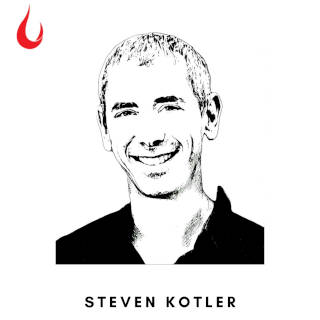[Image by Richi Choraria from Pixabay]
Good morning,
With elections across five states around the corner, how may politicians be thinking through their options? To most people on the outside, all of what they do may seem opaque. Times like these, we love turning to Team of Rivals: The Political Genius of Abraham Lincoln by Doris Kearns Goodwin. There’s this part where she describes what follows after Lincoln pips other nominees from the party, William Seward and Salmon Chase, to run for President of the US.
“Exulting in Lincoln’s lack of national experience, Democratic newspapers had a field day ridiculing his biography. He is ‘a third rate Western lawyer,’ the Herald gloated. ‘The conduct of the republican party in this nomination is a remarkable indication of a small intellect, growing smaller.’ Rejecting Seward and Chase, ‘who are statesmen and able men,’ the Herald continued, ‘they take up a fourth rate lecturer, who cannot speak good grammar,’ and whose speeches are ‘illiterate compositions… interlarded with coarse and clumsy jokes.’ Not content to deride his intellect, hostile publications focused on his appearance. ‘Lincoln is the leanest, lankest, most ungainly mass of legs, arms and hatchet-face ever strung upon a single frame. He has most unwarrantably abused the privilege which all politicians have of being ugly.’
“More violent attacks appeared in the Charleston Mercury, which scornfully asked: ‘After him what decent white man would be President?’ Seward, the paper insisted, had been ‘thrust aside’ because he ‘lacked the necessary nerve to carry through measures of Southern subjugation.’ Lincoln, on the other hand, was ‘the beau ideal of a relentless, dogged, freesoil border-ruffian.’ He was ‘an illiterate partisan,’ claimed the influential Richmond Enquirer.”
But he stayed the course and Goodwin has it that he later co-opted them into his administration after he was elected into office.
Have a good day.
In this issue,
- India’s bovine problem
- Why you need “non-time”
- The law of unintended consequences
India’s bovine problem
“Few farmers can afford to rear a sick, unproductive cow”
That cows cannot be culled in India isn’t news any longer. What isn’t news either is how those who attempt to do it are routinely hauled by lawmakers or vigilantes. But what is news is how a highly contagious and chronic disease called Brucellosis is impacting the rural economy. The Singapore-based science journalist Sandy Ong reports, “A highly contagious and chronic disease, brucellosis is caused by bacteria and mainly affects livestock such as cattle, sheep, and goats. When infected, an animal can suffer from late-term abortions, poor fertility, and reduced milk production. The disease is very damaging for farmers and causes huge losses, says Jiwan Gupta, a veterinarian in Punjab. Overall, these livestock losses may have cost India about $3.4 billion, according to a 2015 analysis published in the journal Preventive Veterinary Medicine…
“Currently, farmers may take their sick cows to shelters called gaushalas, run by nongovernmental organizations, but they are ‘already full to capacity,’ says Navneet Dhand, a veterinary epidemiologist at the University of Sydney. That’s partly because India has such a large cattle population—some 200 million cows, according to the country’s latest livestock census. Worldwide, one in every three to five cows is in the Indian subcontinent, Sriranganathan [Nammalwar Sriranganathan, a professor of bacteriology at the Virginia-Maryland College of Veterinary Medicine] estimates. And many of them live on rural mom-and-pop farms rather than large organized ones. Controlling brucellosis infections in so many animals, he adds, is ‘very difficult.’
“But given the severity and scale of the situation, Indian authorities are determined to try. Already underway is a new animal vaccination programme that aims to eradicate brucellosis in the country by 2025. While some of those involved are optimistic of hitting that target, others aren’t so sure.
“‘That is very, very ambitious,’ says Dhand. ‘Just vaccination is not going to be enough, so other things have to be adopted to complement vaccination. Vaccination will have to be part of any programme, but it shouldn’t be the only thing.’”
Dig deeper
Why you need non-time
In our incessant search for productivity, and desire to put 60 seconds of hard work into every minute, we often miss out on a counterintuitive fact—quiet time, devoted to yourself, freed from the noise and demands of the world, is an essential ingredient of productivity.

“Being time-strapped can be kryptonite for creativity.”
High achievers such as Steve Jobs and Albert Einstein knew this. A recent piece in Inc points to how they included non-time in their daily routine.
“Albert Einstein was a lifelong sailor who insisted that many of his best ideas came to him while he was floating around doing nothing and enjoying his own non-time.
“Steve Jobs too was a famous loafer. ‘The time Steve Jobs was putting things off and noodling on possibilities was time well spent in letting more divergent ideas come to the table,’ Wharton professor Adam Grant told Business Insider about Jobs’ long stretches of aimless non-time.”
The article quotes author and TED speaker Steven Kotler: “When pressed, we're often stressed. We're unhappy about the hurry, which sours our mood and further tightens our focus. Being time-strapped, then, can be kryptonite for creativity.”
Dig deeper
The law of unintended consequences

(Via WhatsApp)
Still curious?
- Think being an ideas junkie makes you creative? Think again - Charles Assisi
- The man who knew tomorrow - Vinay Sitapati
- Be positive. Be kind. Be helpful. - R Sriram
Tell us what you think and find noteworthy.
And if you missed previous editions of this newsletter, they’re all archived here.
Bookmark Founding Fuel’s special section on Thriving in Volatile Times. All our stories on how individuals and businesses are responding to the pandemic until now are posted there.
Warm regards,
Team Founding Fuel
(Note: Founding Fuel may earn commissions for purchases made through the Amazon affiliate links in this article.)


